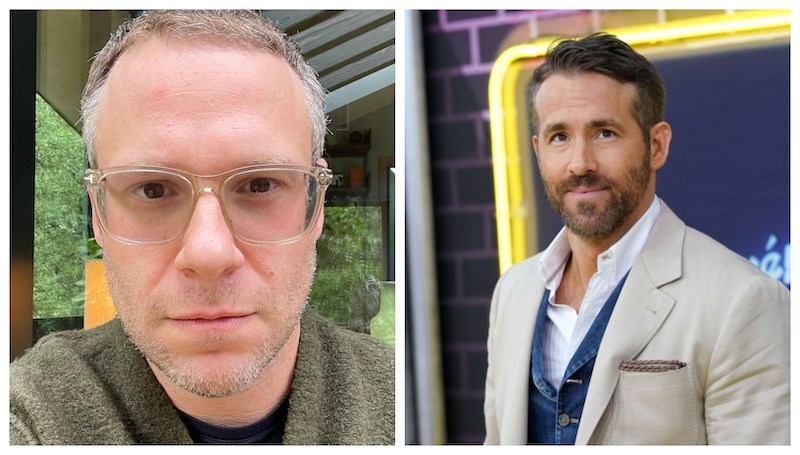B.C.-based film production workers will not take strike action this fall — but many union members say lengthy hours create unsafe working conditions.
Advocates for safer working conditions in the film industry have been sounding the alarm for years in countries around the world. Now, the International Alliance of Theatrical Stage Employees (IATSE), which represents roughly 60,000 employees in the U.S., says it will commence nationwide strike action on Oct. 18 unless an agreement is reached.
The union cites unsafe working hours, poor wages for workers in the lowest-paid crafts, and inadequate breaks as reasons for the strike. It also notes that workers on some “new media" streaming projects are paid less, despite working on productions with equivalent budgets.
IATSE Local 891, the union representing over 10,000 film production workers in 19 different crafts in B.C. and the Yukon, is the largest IATSE Local 891 is the largest Film and Television technicians local in North America.
There are five major and one minor Film and TV Unions in British Columbia. The BC Council of Film Unions is made up of International Cinematographers Guild Local 669, Teamsters 155 and IATSE Local 891. The Actors, Stunt Performers and Background performers are represented by UBCP/ACTRA, and Directors, Assistant Directors and Location Managers are represented by the DGC-BC Council. The minor Union is ACFC-West and they represent technicians on lower budget and Canadian productions.
The BCCFU’s Master Agreement and the DGC-BC’s Agreement both expired on March 31, 2021, and both the BCCFU and the DGC have been in negotiations since February bargaining a successor agreement to the 2018-2021 Agreements. UBCP/ACTRA was able to negotiate a master Agreement for the term of 2021-2024.
As they are in active negotiations, they have not ruled out strike action, and may eventually get to impasse where that would take place.
Phil Klapwyk, IATSE Local 891 Business Representative, told Vancouver Is Awesome that the BC Labour Relations Board ordered film and tv unions to enter into Safe Harbour Agreements in 2008 for each successive round of bargaining. The Safe Harbour Agreements are individual to productions that demonstrate a commitment to produce in B.C.
The Safe Harbour Agreements protect the individual production from job action, be it legal strikes or lockouts of workers should negotiations break down, and either a strike or a lockout is taken. The Film and TV Unions in B.C. still have the ability to strike and the employers still have the ability to lockout workers should negotiations break down, and Safe Harbour Agreements ensure that productions that are underway during the negotiations are not subject to that job action.
"US-Based workers working on B.C. productions that are covered by safe harbour agreements are not subject to the same contract that B.C.-based workers are. That is the reason they would be allowed to withhold their services in a strike action," he said.
"The vast majority of workers are Canadians. Nine or 10 productions have people working on work permits."
IATSE Local 891 must also work with two other film industry unions in B.C. in order to reach agreements. One of them is the Teamsters Union Local 155, which represents everything from transportation to animal wrangling, security to catering, and more. The other is the International Cinematographers Guild Local 669, which represents camera and publicity professionals.
Together, the three unions form the British Columbia Council of Film Unions, and negotiate collectively with the AMPTP and the CMPA the BCCFU Master Agreement.
"Our workers are tired and unsatisfied."
Currently, the BCCFU isn’t in a position to strike, as negotiations are ongoing, but Klapwyk said it is a possibility, "should the bargaining break down."
Klapwyk underscored that many workers love the film industry and have dedicated their lives to it — but long hours make the environment unsafe.
"The shoot day is built around a 12-hour schedule. But generator operators have 15 to 16 hour days. We have other technicians like Special Makeup Effects Artists who regularly work long days. Also, production assistants, represented by the DGC-BC have their days and their pay built around 15-hour days as a matter of course."
With some productions filming in Langley, he notes that commute times have gotten longer.
An Instagram account called IATSE Stories shares stories from film workers around the globe. Some Vancouver-based workers have shared stories, with many of them stating that they'd fallen asleep on set or had no time to have a life outside of work.
Vancouver resident Kerri Coombs started working in film in 1999 when she was in her twenties but left the industry for about 10 years. When she returned to it in her forties, she says she suffered severe depression.
"I was suicidally depressed," she told V.I.A. "Along the way, I lost so many friends. You'll be at work and you get obituaries emailed to you in the middle of your workday. And you may learn someone you were just talking to yesterday and [was] totally fine is now gone.
"I've never seen that in any other industry."
Seth Rogen and Ryan Reynolds share support
Vancouver's own Hollywood heavyweights Seth Rogen and Ryan Reynolds have shared their support for film workers.
On Sept. 22, Rogen took to Twitter to state that "our films and movies literally would not exist without our crews, and our crews deserve better." The funnyman also joked that it might have been a little "early" in the day for him when he wrote that because he meant to say "film and TV."
Ryan Reynolds also shared his support for film workers in an Instagram story, although he didn't have to edit his first attempt à la Rogen.
Numerous other actors have shared similar messages including Ben Stiller, Kerry Washington, Jane Fonda, and more.



